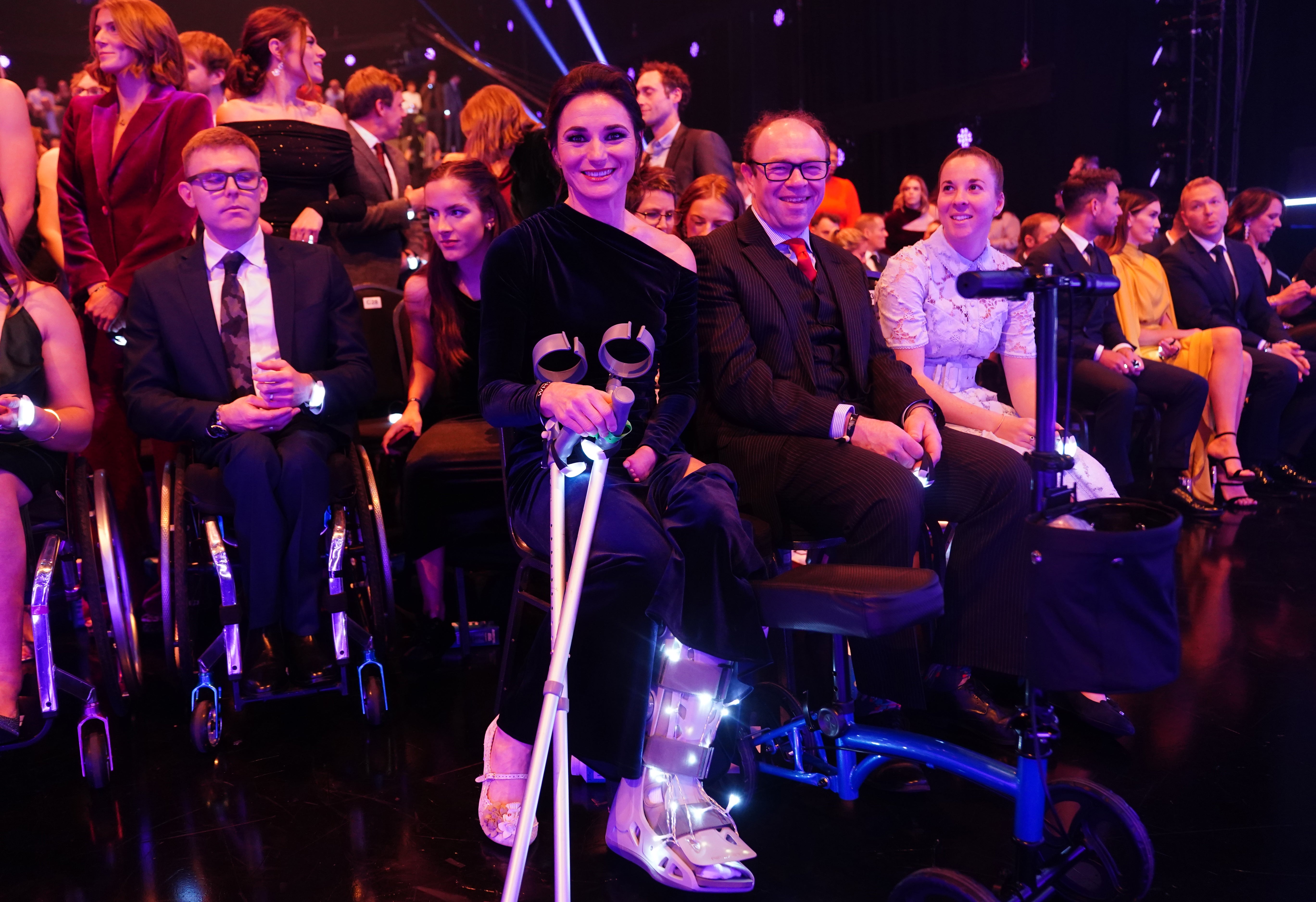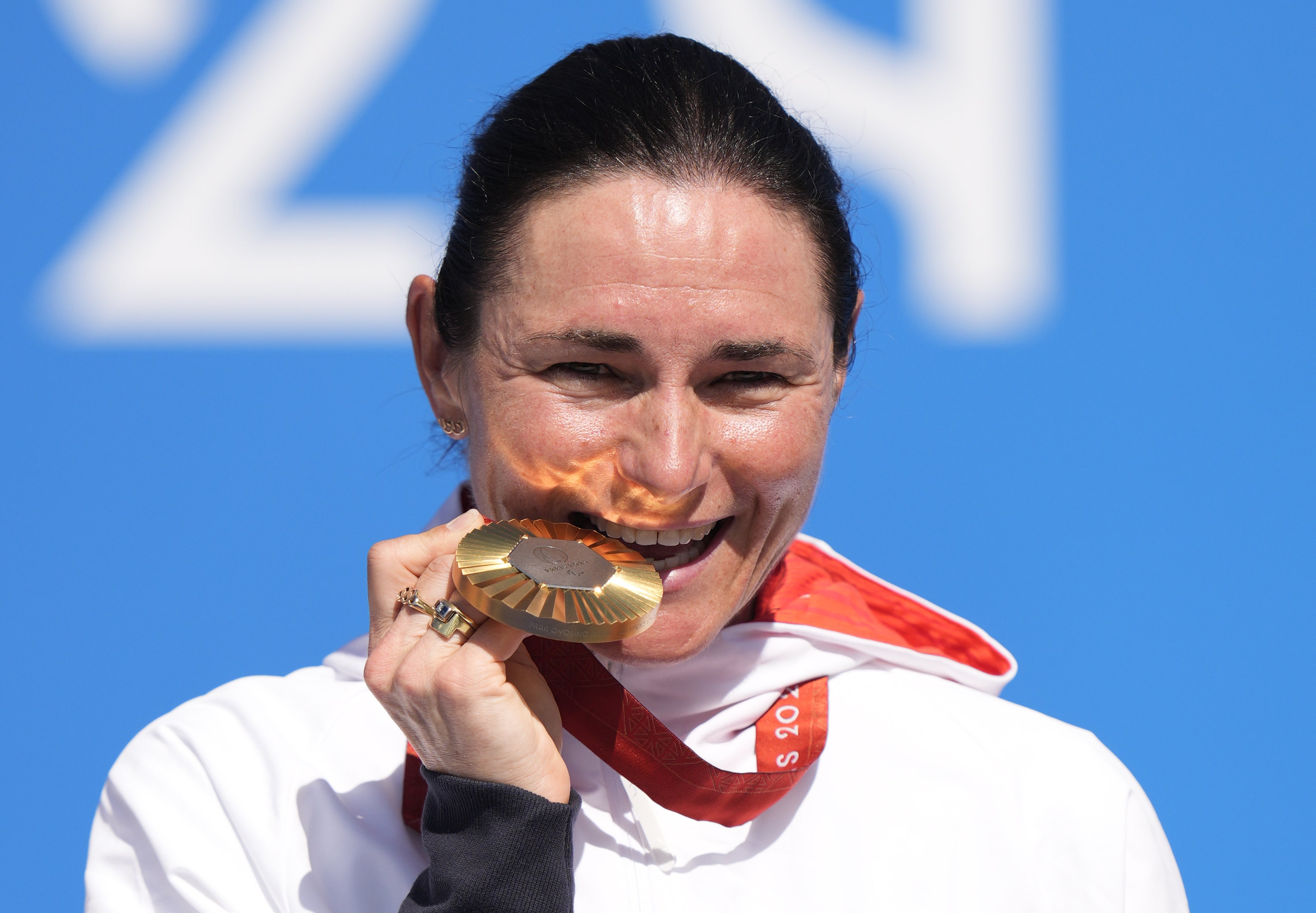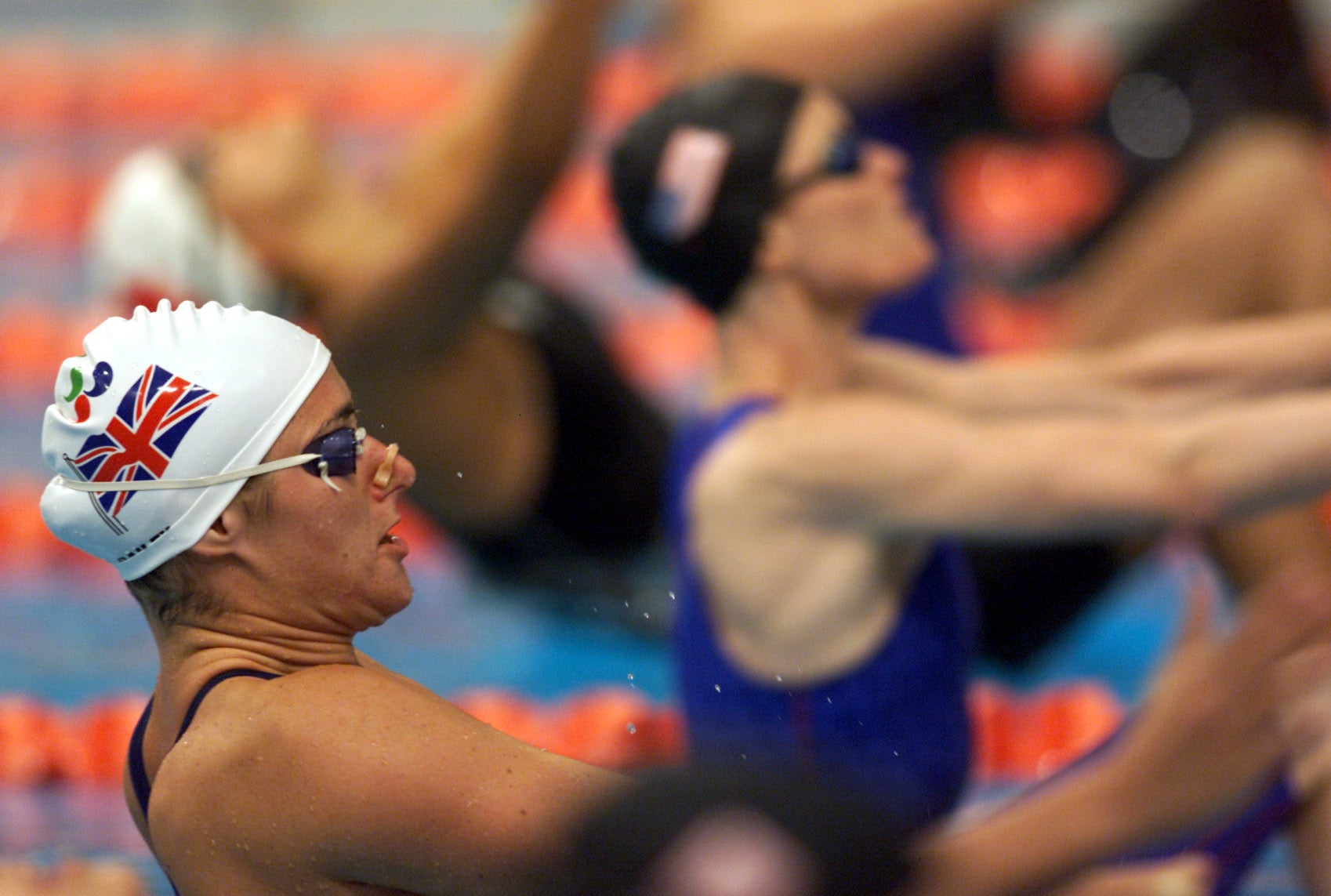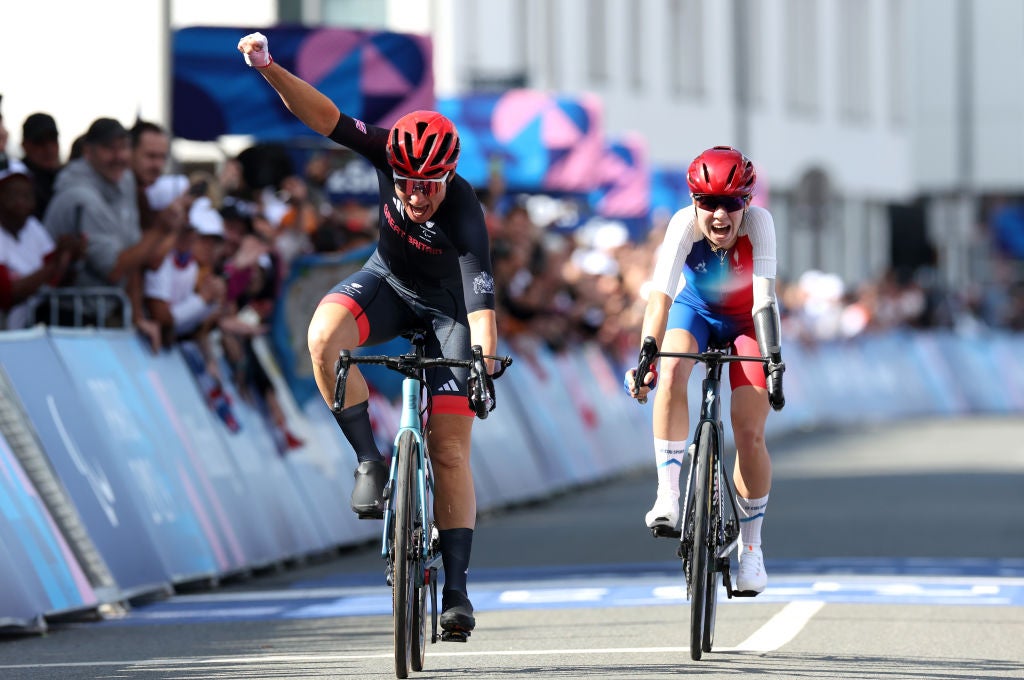‘Who is she?’ Why one of Britain’s greatest sporting heroes still lacks recognition
Dame Sarah Storey has won 19 Paralympic golds in two sports over a 32-year period but as she explains to Luke Baker, that hasn’t meant appreciation and exposure have always followed


By any objective measure, Dame Sarah Storey might be Great Britain’s greatest sportsperson. Her incredible tally of 19 Paralympic gold medals puts her joint fifth on the all-time list and is comfortably clear of any other British Olympian or Paralympian.
When silvers and bronzes are taken into account, she actually has 30 Paralympic medals accrued over a 32-year period from Barcelona 1992 to Paris 2024 – giving her longevity at the elite level that few, if any, other British athletes can match.
That frankly ridiculous haul also comes from both swimming and cycling – when mastering one sport is hard enough, conquering two is truly remarkable.
Given her accomplishments, Storey should be a household name, an instantly recognisable face and one of the first names to pass the lips of those discussing GB’s greatest sporting star.
Yet somehow, the 47-year-old flies slightly under the radar. She’s hardly an unknown, having received a damehood after London 2012 and been nominated for BBC Sports Personality of the Year (Spoty) on four occasions (although she is yet to finish in the top three), but still hasn’t truly broken through into the public consciousness in the way many lesser sporting lights have.
She was due to appear on ITV’s reality show Dancing on Ice this winter but was forced to pull out earlier this month after fracturing her left ankle in training.
“I’m gutted. I was having so much fun,” says Storey. “It’s 20 years since I learned a new sport, so I was loving doing that.
“Obviously not anywhere near the level of real figure skaters but it was great while it was going on. Seven weeks of hard work, which ended in a stumble.”
It meant she appeared at this week’s Spoty in a walking boot, where she watched 800m Olympic champion Keely Hodgkinson win the main award.


Storey explains that the reaction to her withdrawal from Dancing on Ice just highlighted how far there still is for her to go in terms of name recognition.
And she believes a lack of exposure for parasport, certainly outside of the Paralympics, in terms of TV coverage and general media reporting plays a huge role in this.
“It’s still the case that we struggle with funding and with exposure. You only have to look at comments when I was found to be out of Dancing on Ice,” she says. “People were like, ‘Well, who is she? Hopefully, she’s replaced with someone who’s more well-known’.
“That just says a lot, doesn’t it? People don’t see parasport on the TV enough to know who their most successful athlete is.
“Many people have, more than once, assumed that I’ve retired. And they were very surprised and pleased to see that I was selected again for another Games.
“So, I think it’s really important that people don’t make that assumption just because they haven’t seen you race on TV.”
The lack of exposure for parasport means Storey is forced to have many strings to her bow. In addition to competing at the highest level in cycling, she has roles with Greater Manchester Moving, Lancashire Cricket Club and Manchester Met Institute of Sport.


“I think we don’t get enough coverage between Paralympics,” she admits. “Parasport disappears for the four years in between.
“There isn’t sufficient funding and support for any of the para-athletes – except maybe tennis – for athletes to be professional. So, the vast majority of para-athletes will have a job of some kind.
“We have to train like we’re full-time, we have to deliver the performances as though we’re full-time. But we don’t get the coverage to bring the finance into the sport that we need to deliver that professional level. And it’s really, really challenging.”
Storey places a lot of blame for para-cycling’s struggles at the door of the governing body, the UCI, who also run the able-bodied side of the sport and would like to see big changes.
“The international governing bodies of para-sport need to start to speculate to accumulate on the coverage front,” she explains. “We need to see the event at the highest level – World Championships, World Cup events – on the TV. We need to see that streamed with proper coverage.
“It needs to be properly put together, with commentators, with mixed-zone people, with a proper presentation, so that it’s delivered to the streaming platforms. And then, as print journalists, you can pick up the stories that come out of that.
“At the moment, you have to work really hard to find out who’s done what. And even when I’m following my own sport and I know where to look for it, it’s not well laid out, it’s not well done.

“When you look at the way the UCI do things, the only reason we got coverage at the World Championships in Zurich this year was because we happened to be part of the event where the able-bodied riders were.
“If we were standalone, like it will be next year in Belgium, I can almost guarantee the coverage will be nothing like what we experienced in Zurich.
“The UCI have had hold of para-cycling since 2006 or 2007. So, in almost 20 years, very little has improved. Those integrated events are really important. And I think once we’ve got coverage, once we’ve got a narrative in between the Paralympic Games, we start to see those personalities coming out.”
Storey has not yet decided whether she will carry on cycling until the 2028 Paralympics in Los Angeles, when she’ll be 50 years old, but claims she feels stronger than ever on the bike.
Perhaps a 20th Paralympic gold medal would be the achievement that finally gets her the recognition she deserves.
Join our commenting forum
Join thought-provoking conversations, follow other Independent readers and see their replies
Comments
Bookmark popover
Removed from bookmarks